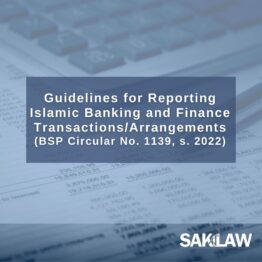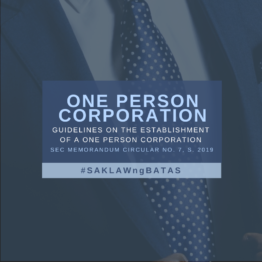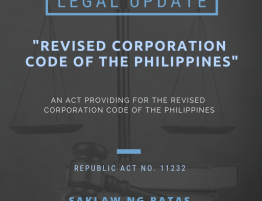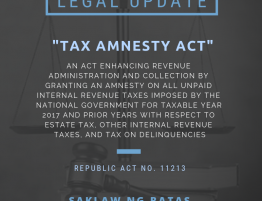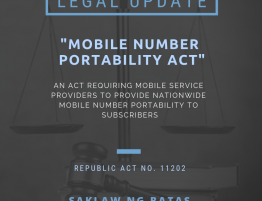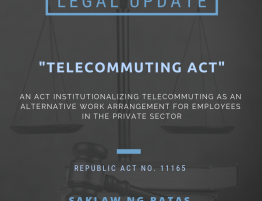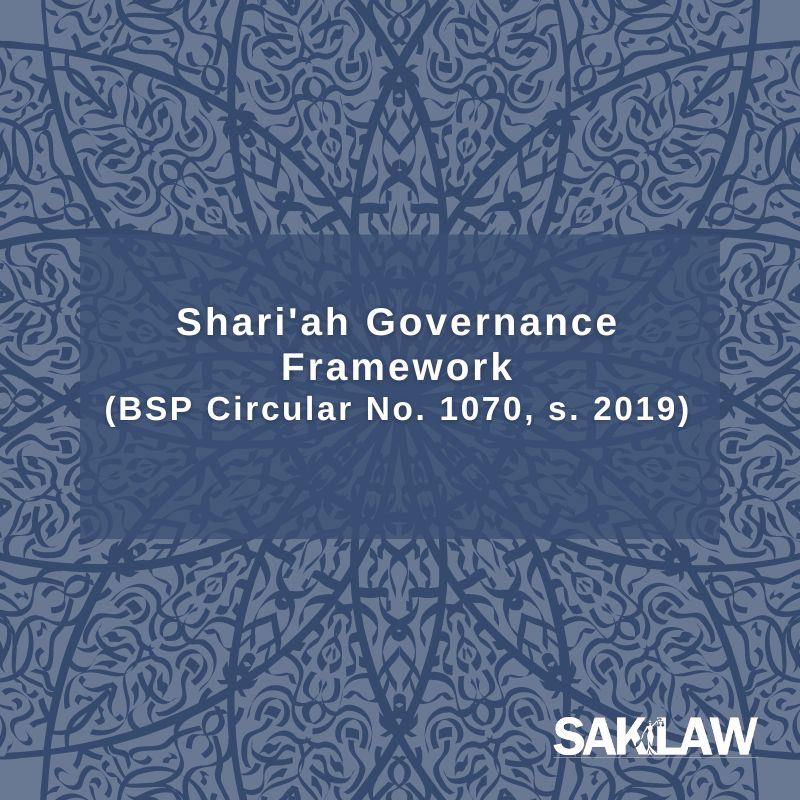
The Bangko Sentral ng Pilipinas (BSP) has approved Circular No. 1070 on the Shari’ah Governance Framework (SG) for Islamic Banks (IBs) or Islamic banking units (IBUs). The SGF was issued following the passage of Republic Act No. 11439 or the Islamic Banking Act and the Guidelines on the Establishment of IBs and IBUs.
The BSP has imposed requirements on the SGFs of IBs or IBUs relating to the Board of Directors (BOD), Shari’ah Advisory Council (SAC), and Compliance and Internal Audit. These minimum requirements are summarized below:
The BSP has imposed requirements on the Shari’ah Governance Frameworks of IBs or IBUs relating to the Board of Directors (BOD), Shari’ah Advisory Council (SAC) , and Compliance and Internal Audit. These minimum requirements are summarized below.
A. Effective BOD and management oversight over Shari’ah compliance
There should be a BOD that shall ensure the compliance of the IB or IBU with Shari’ah principles. The BOD shall introduce an effective mechanism and oversight on the SGF. The IB or IBU shall ensure continuous enhancement of the competency of the BOD, management and all personnel involved with lslamic banking operations. The senior management of the IB or IBU shall be responsible for implementation of the SGF. The relevant policies and procedures on lslamic banking products and services, at a minimum, shall be made available to concerned units and shall constantly be reviewed and updated to reflect current market practices and developments. The functions and responsibilities of members of the BOD and the SAC should be embedded in the bank’s policies and processes.
B. Independent and Effective SAC
There should be a SAC appointed by the majority stockholders upon the recommendation of the BOD pursuant to the IB or IBU’s qualification requirements and the minimum prudential requirements set by the BSP. The BOD shall have a vetting process to ensure the fitness and propriety of the members of the SAC before endorsing their appointment for approval by the stockholders. In appointing SAC members, the term of reference adopted by the BOD must include the SAC’s objective, duties and responsibilities, qualification requirements, and the authorities required by the SAC to effectively implement its Shari’ah rulings. The SAC shall discharge its duties independently and objectively. The SAC shall be empowered to consider, decide and oversee all Shari’ah-related matters of the IB or IBU.
The BOD shall ensure that the SAC is not subject to any undue influence or pressure from the management and/or its own members in the performance of the following minimum functions:
1. Approval and certification for the product structures and all the documentation thereon;
2. Rendering opinions or clarifications on Shari’ah compliance matters; and
3. Leading the Shari’ah compliance verification of lB or IBU’s transactions and operations through an effective internal and/or external Shari’ah audit and issuing an annual Shari’ah Compliance Statement thereon.
C. Independent and Effective Compliance and Internal Audit Functions
The compliance function shall, at a minimum, ensure that the rulings of the SAC when adopted by the BOD, are properly implemented. The internal audit must undertake a review of the Shari’ah compliance at least annually in support of the SAC’s annual Shari’ah Compliance Statement. the statement should be considered in the preparation of the Annual Report of the IB or the conventional bank, in the case of lBU. The IB or IBU may outsource the Shari’ah compliance and audit functions during the first three years of Islamic banking business upon approval thereon by the BOD and with prior notice to the appropriate supervising department of the BSP.
The Shari’ah Governance Framework is an important step in the development of Islamic Finance in the Philippines as those seeking to establish IBs or IBUs now have regulatory guidance on the measures, arrangements, structures, and policies needed to be fulfilled to ensure compliance with Shari’ah principles
Note: Subsequently, the BSP issued circulars on the Management of Liquidity Risk by IBs and IBUs. The BSP has also issued a memorandum to address Frequently Asked Questions on Islamic Banking in the Philippines. The Insurance Commission also issued Circular Letter No. 2022-04 on the Baseline Regulatory Framework for Takaful Undertakings earlier this year, while the Bureau of Internal Revenue (BIR) issued Revenue Regulations No. 17-2020 in 2020 to implement the tax neutrality provision of the Islamic Banking Act.
Disclaimer: All of the information on this website is provided as general information, not as legal advice, nor as a solicitation for legal services. The information is not provided in the course of an attorney-client relationship between Atty. Salma F. Angkaya-Kuhutan and anyone who views it. Viewers should not rely on the information contained in this website when making decisions regarding legal matters but should consult a qualified attorney for legal advice. You should not act based solely on the information found on this website and are strongly advised to seek the legal opinion of a lawyer.
You may contact the Attorney through the information provided on this website if you are interested in the legal representation, counseling, and related legal services that we provide. You may also be interested to learn more about our Islamic finance-related legal services.

